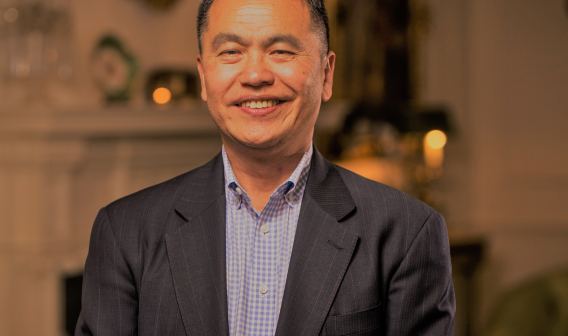Our company is fully engaged in partnering with many organizations on cybersecurity, whether that’s technology or the idea of our platform’s interoperability and the ability to integrate with cyber tools. The No. 1 goal is to be proactive, also ensuring maximum coverage and flexibility for our customers to design cybersecurity answers and systems that work best for their needs. That, to me, is international coordination — internal coordination and at the national level — but also working outside the tech companies to make sure we are protecting critical infrastructure.
El Koubi: I would love to get your take on the cybersecurity landscape for industry in the United States. In particular, your assessment of it in Virginia. We know Virginia has a lot of strengths in this area. Help us understand the national landscape and how the Commonwealth fits in on a national level.
Ling: My vantage point right now is the federal community in and around the DMV area. It’s hard for me to compare what’s happening elsewhere in the U.S. from state to state to state. I would say that the focus has been on the federal government where it’s headquartered here. So, for me, the spotlight is on how to secure critical infrastructure in the system. I believe we’re celebrating the fact that many amazing companies here in Virginia are building and innovating cyber technology, and we have a chance to help and partner with them.
I know we’ve been partnering with Governor Youngkin on his executive directives, whether that’s on AI, how we provide IT safeguards for K-12 and higher education, or how to bring people to Virginia to work here. I also understand Virginia has an interest in cybersecurity, whether on the research side or leading on AI innovation, and that’s interesting to watch. I love that Virginia has talked about responsible AI and responsible security — ethics and transparent use of AI.
El Koubi: You mentioned AI and its role. Talk about the role AI plays in Microsoft’s cybersecurity work. What’s on the horizon? How does it relate to cybersecurity?
Ling: I think they work hand in hand. It is essential that AI is part of how we look at cybersecurity. AI, as we know, in the company and with the government, surfaces anomalies and creates that alert system. AI is essential to building world-class cybersecurity capabilities for our customers. We are proud that AI is infused across our technology and our product stack.
One thing we know is important is not just about the technology, but to understand there are end-to-end scenarios. I mentioned threat hunting and intelligence gathering, but there are other things, like incident response. Once you’re hit, what do you do? It’s technology plus customer real-life scenarios.
El Koubi: As we think about managing cybersecurity issues at the federal level in the United States and elsewhere, what do you see as the big trends? What are you looking at over the next few years in terms of opportunities and challenges?
Ling: We want to tie back to AI. I would expect the level of sophistication of cyber threats to increase, and we all know that it will continue. The question is how to best mobilize and use AI to support proactive protection. We’ll see greater reliance on AI to augment what I would call cyber defensive capabilities, how to repel threats before they happen, using AI to be proactive.





